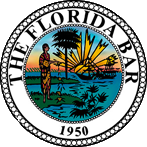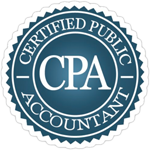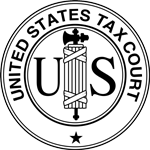- Free Consultation: (772) 418-0949 Tap Here to Call Us
Important Information If You Receive An IRS CP2000 Notification

If you received an IRS CP2000 Notice, the IRS reports indicate that you did not report all your income on your IRS individual 1040 Tax return for a particular year. Whenever a third-party issues tax records to you, they must submit a copy of what was sent to the IRS. The IRS will cross-reference your tax information to third-party information reports.
This often happens when:
- You have performed independent contract work, were issued a 1099-NEC or 1099-MISC, and did not report this. The issuers of the 1099s must also send a copy of that 1099 to the IRS.
- You pulled out retirement funds from a 401K but did not report the 1099R information on your return.
- You did not report the sale of your home. The broker sent the IRS a 1099S which provides this information. What compounds it is that the 1099-S often only reports the sales price without considering the basis, which often leads to an incorrect higher capital gain tax. In addition, you may qualify for the IRS Section 121 Exclusion of the Gain, which could significantly lower or eliminate any of the capital gains.
- You receive payments through payment cards, payment apps, or online marketplaces. You may get a Form 1099-K if you. You could also get a 1099-K if you received payments as a gig worker, freelancer, or other independent contractor (self-employed). This may also include payments you received from selling items as a hobby.
- You had crypto currency coins sales such as Bitcoin, and these were not reported.
What Information Does a CP2000 Notice Provide?
The CP2000 notice provides the following:
- The amounts you reported on your original or processed amended return.
- The amounts reported to the IRS by the payer.
- The payer’s name, ID number, the type of document issued (W-2, 1098, 1099), and the taxpayer identification number of the person to whom the document was issued.
- The proposed changes to your income, tax, credits, or payments.
- A Response form, payment voucher, and an envelope.
Should I be worried about a CP2000?
Yes, because ignoring it could lead to unfavorable events to follow. The CP2000 is not an actual tax bill. It primarily lists corrections on your tax return. However, if left unchallenged, the amounts reflected will become assessed, and then, if a balance results, it will become collectible by the IRS. A Notice of Deficiency will then be issued, which is often the starting point for collection activities to commence.
What Should I Do If I Receive a CP2000 Notice?
- Read your notice carefully. It explains the information the IRS received and how it affects your tax return.
- Provide a timely response. If you need additional time to respond, you can request an extension by mailing or faxing in the request or by calling the toll-free number shown on the notice.
- Complete the notice response form and state whether you agree or disagree with the notice. The response form explains what actions to take. (Your specific notice may not have a response form. In that case, the notice will have instructions on what to do). You can submit your response by:
- Mail using the return address on the enclosed envelope, or
- Fax your documents to the fax number in the notice using either a fax machine or an online fax service.
- If you agree with the proposed changes, follow the instructions to sign the response form. The IRS requires both spouses’ signatures if you filed married filing jointly.
- If you disagree, complete and return the response form. Provide a signed statement explaining why you disagree and supply any documentation, such as a corrected W-2, 1099, or missing forms, to support your statement.
- If the information reported to IRS is incorrect, contact the business or person who reported the information. Ask them for a corrected document or a statement supporting why it is in error, then send the IRS a copy with your response.
Again, it’s important to respond by the IRS deadline fully. You have the right to contest penalties and appeal a CP2000 determination. You generally are given a 30-day deadline to appeal the tax increase. If you don’t respond, the IRS will send you a Statutory Notice of Deficiency, which in 90 days from the date of this letter, will be followed by a bill for the proposed amount due.
Regardless of what triggered the IRS to process a CP2000 letter, to avoid taxes, penalties, and interest, it is essential for either you or a tax professional to address it.
Get Trusted Representation for Dealing with IRS CP2000 Notices

Obtaining professional advice from a dedicated tax resolution professional may be ideal if you are unsure how to address an IRS CP2000 Notice. It would be best if you had professional answers you could count on. Tax Attorney-CPA-EA, Will Harmon of Harmon Tax Resolution, LLC, has years of experience assisting taxpayers with resolving issues regarding unreported income. If you need help, please call (772-418-0949), or complete an online inquiry form for a free consultation with experienced Tax Attorney-CPA-EA, Will Harmon of Harmon Tax Resolution, LLC. He will provide trusted representation so that you can put this behind you and get on to doing the things that matter most.

For additional information, please see the following blog articles:
- “What Should I Do If I Receive an IRS Notice.”
- ”Received an IRS Notice CP2000”
- “When Should I Call A Tax Resolution Firm?”











